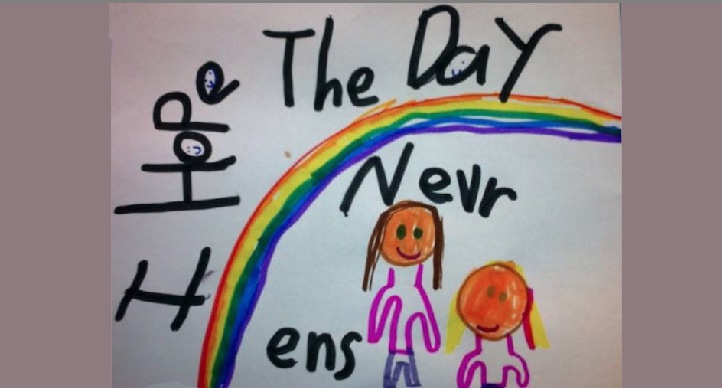“I Don’t Know What a Person Says Next. Please Help?”

By Michelle Strater Gunderson.
What does it mean to teach our youngest students?
It means that we have the privilege of guiding dear persons in having good and fulfilled lives.
It means learning to wait for someone else to tie their shoes before running out to recess. It means working for days on end to learn the difference between a lower case b and d. It means learning to be careful with your words and actions.
I am always so taken by how many mistakes my first graders make in the course of a day, and how willing they are to pick themselves back up and try again. The following story happened last week and reminded me of how precious and vulnerable children are at this age.
During our sharing time one of my students wanted to sing a song she had made up for our class. She sat in the sharing chair and started singing a heart-felt song about how different she was than everyone else and what it felt to be like her. Two of the boys sitting in front of her plugged their ears.
I was appalled. How could children who have spent four months with me learning to care for others do such a thing? Then I took a moment and realized that they had never experienced such raw emotion, and they were not sure how to react to it.
I had to say to myself – remember, when we teach young children even the simplest events are brand new to them.
After the song was over I took the boys aside to explain to them that plugging ears when someone is singing is never the right thing to do. I asked them what they were thinking and one of them said, “It was so icky.” We talked about how it makes us uncomfortable when someone shares their heart, and that this feeling can be icky.
Then the boys decided to apologize. I have never heard such clear and thoughtful words from small "I Don't Know What a Person Says Next. Please Help?" - Living in Dialogue:
